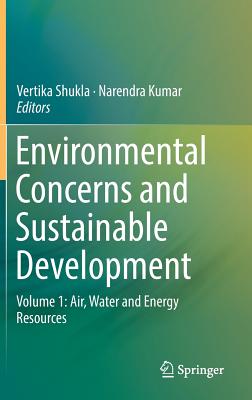A System for Survival: GIS and Sustainable Development
暫譯: 生存系統:地理資訊系統與可持續發展
Allan Falconer, Joyce Foresman
- 出版商: ESRI Press
- 定價: $330
- 售價: 3.0 折 $99
- 語言: 英文
- 頁數: 122
- 裝訂: Paperback
- ISBN: 158948052X
- ISBN-13: 9781589480520
-
相關分類:
地理資訊系統 Gis
立即出貨(限量) (庫存=3)
買這商品的人也買了...
-
 系統程式 (System Software, 3/e)
系統程式 (System Software, 3/e)$580$568 -
 C++ Primer, 3/e 中文版
C++ Primer, 3/e 中文版$980$833 -
 網路遊戲密技吱吱叫 4
網路遊戲密技吱吱叫 4$99$84 -
 SQL 語法查詢百科 (SQL Fundamentals, 2/e)
SQL 語法查詢百科 (SQL Fundamentals, 2/e)$720$612 -
 Database Management Systems, 3/e (IE-Paperback)
Database Management Systems, 3/e (IE-Paperback)$1,200$1,176 -
 Sun Certified Programmer & Developer for Java 2 Study Guide, 2/e
Sun Certified Programmer & Developer for Java 2 Study Guide, 2/e$1,840$1,748 -
 作業系統概念 (Operating System Concepts, 6/e Windows XP Update)
作業系統概念 (Operating System Concepts, 6/e Windows XP Update)$780$741 -
 資料庫系統原理第三版 (Fundamentals of Database Systems, 3/e)
資料庫系統原理第三版 (Fundamentals of Database Systems, 3/e)$760$646 -
 ASP.NET 程式設計徹底研究
ASP.NET 程式設計徹底研究$590$466 -
 C# Primer Plus 中文版 (C# Primer Plus)
C# Primer Plus 中文版 (C# Primer Plus)$680$578 -
 PCI Express System Architecture (Paperback)
PCI Express System Architecture (Paperback)$3,400$3,332 -
 Computer Networking with Internet Protocols and Technology
Computer Networking with Internet Protocols and Technology$1,100$1,078 -
 SCJP‧SCJD 專業認證指南 (Sun Certified Programmer & Developer for Java 2 #310-305 與310-027)
SCJP‧SCJD 專業認證指南 (Sun Certified Programmer & Developer for Java 2 #310-305 與310-027)$850$723 -
 人月神話:軟體專案管理之道 (20 週年紀念版)(The Mythical Man-Month: Essays on Software Engineering, Anniversary Edition, 2/e)
人月神話:軟體專案管理之道 (20 週年紀念版)(The Mythical Man-Month: Essays on Software Engineering, Anniversary Edition, 2/e)$480$379 -
 FreeBSD 5.x 架設管理與應用
FreeBSD 5.x 架設管理與應用$490$382 -
 CSS2 速查手冊 (CSS Pocket Reference, 2/e)
CSS2 速查手冊 (CSS Pocket Reference, 2/e)$199$157 -
 與熊共舞:軟體專案管理的風險管理 (Waltzing With Bears: Managing Risk on Software Projects)
與熊共舞:軟體專案管理的風險管理 (Waltzing With Bears: Managing Risk on Software Projects)$380$300 -
 Java 2 500 個高段應用範例技巧大全集
Java 2 500 個高段應用範例技巧大全集$580$452 -
 Linux 核心開發指南
Linux 核心開發指南$500$450 -
 Fedora Core 3 Linux 實務應用 DVD版
Fedora Core 3 Linux 實務應用 DVD版$650$553 -
 ASP.NET 徹底研究進階技巧─高階技巧與控制項實作
ASP.NET 徹底研究進階技巧─高階技巧與控制項實作$650$507 -
 UML 精華第三版 : 標準物件模型語言 (UML Distilled, 3/e)
UML 精華第三版 : 標準物件模型語言 (UML Distilled, 3/e)$460$391 -
 打好基礎─學會程式設計的原理與技術
打好基礎─學會程式設計的原理與技術$420$327 -
 數位相片編修聖經
數位相片編修聖經$860$731 -
 駭客防護實戰系列─木馬防護全攻略
駭客防護實戰系列─木馬防護全攻略$490$417
商品描述
Description:
"We have in recent years begun to view our planet as an oasis in the universe," writes Allan Falconer in his introduction to the relationship of the fundamental ideas and principles of sustainable development and geographic information systems, "a closed system with finite resources." Sustainable development-raising standards of living worldwide and maintaining them in ways that do not deplete resources or destroy habitat-is therefore a concept with broad appeal.
The issues and ideas surrounding this desire to both use and protect the earth, today and into the future, are based on contemporary science and international law, as well as the insights of philosophy and religion. The goal is to take action to build a sustainable world based on respect for nature, universal human rights, economic justice, and a culture of peace.
Synthesizing the vast amounts of data being collected about natural resources, population, health, education, public safety, and more - all within highly accurate and specific geographic contexts - GIS can help people assess and understand their community and environment, and change policy and practice at all levels, from the individual to the international. A System for Survival: GIS and Sustainable Development describes examples of how GIS has been crucial in many democratic governance and civil liberty programs, and serves to help make people more aware of how geographic technologies can play a creative and constructive role as we deal with the monumental challenges humanity faces.
Includes contributions from Basanta Shrestha, Birendra Bajracharya, Sushil Pradhan, and Timothy W. Foresman.
Table of Contents:
Themes Respect and care for the community of life Ecological integrity Social and economic justice Democracy, nonviolence, and peace Environmental pollution Biodiversity Climate change Deforestation Food production Fresh water supply Health and disease Urbanization Mountain development Rural development Poverty reduction Methods and tools GIS for beginners Glossary Bibliography
商品描述(中文翻譯)
描述:
「近年來,我們開始將我們的星球視為宇宙中的一片綠洲,」艾倫·法爾科納(Allan Falconer)在其關於可持續發展基本理念和地理資訊系統(GIS)關係的介紹中寫道,「這是一個資源有限的封閉系統。」可持續發展——在全球範圍內提高生活標準並以不耗盡資源或破壞棲息地的方式維持這些標準——因此是一個具有廣泛吸引力的概念。
圍繞著這種既想使用又想保護地球的願望的問題和理念,基於當代科學和國際法,以及哲學和宗教的見解。其目標是採取行動,建立一個基於尊重自然、普世人權、經濟正義和和平文化的可持續世界。
綜合有關自然資源、人口、健康、教育、公共安全等方面的大量數據——所有這些都在高度準確和具體的地理背景下——GIS可以幫助人們評估和理解他們的社區和環境,並在各個層面上改變政策和實踐,從個人到國際。《生存系統:GIS與可持續發展》描述了GIS在許多民主治理和公民自由計劃中至關重要的例子,並幫助人們更清楚地認識到地理技術在應對人類面臨的重大挑戰中可以發揮創造性和建設性的作用。
包括巴桑塔·施雷斯塔(Basanta Shrestha)、比倫德拉·巴賈拉查里亞(Birendra Bajracharya)、蘇希爾·普拉丹(Sushil Pradhan)和蒂莫西·W·福爾斯曼(Timothy W. Foresman)的貢獻。
目錄:
主題
- 尊重和關心生命共同體
- 生態完整性
- 社會和經濟正義
- 民主、非暴力與和平
- 環境污染
- 生物多樣性
- 氣候變遷
- 砍伐森林
- 食物生產
- 淡水供應
- 健康與疾病
- 城市化
- 山區發展
- 農村發展
- 減少貧困
方法與工具
- 初學者的GIS
- 詞彙表
- 參考書目

















